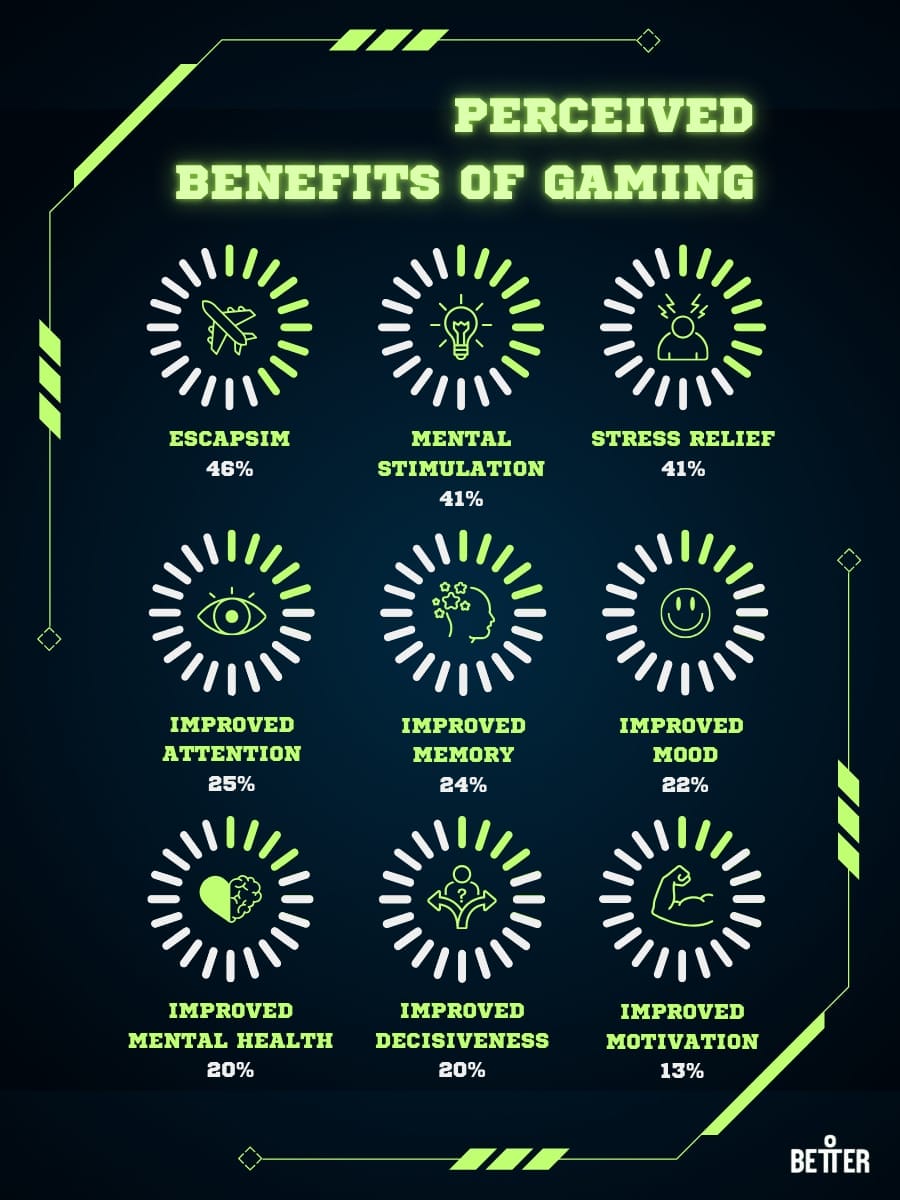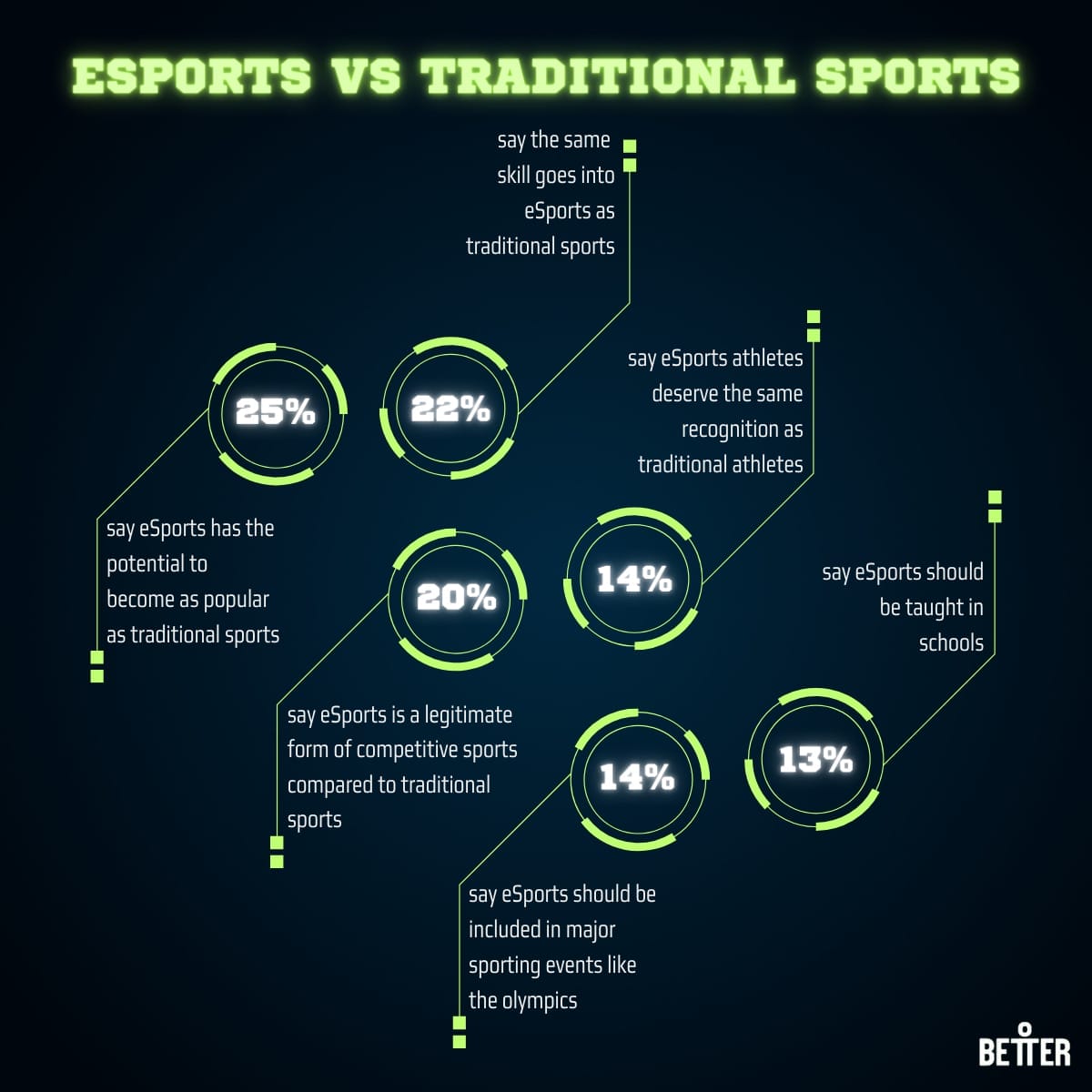Research by Better, a social enterprise with gyms, spa experience and venue hire, surveyed and researched eSports to find 96% of gamers reported positive effects from playing eSports.
For example, a third of gamers said they had better attention spans, and half said eSports helped deal with sense, nearly as many credited games with a better sense of escapism and about a third agreed it helped with mental health.

Okay, that’s all mental. What about physical? Surely, sitting in a gaming chair for much of the day does physical harm?
Maybe it would, but Better’s search found that gamers actually spent more time outside than non-gamers.
There was one gotcha. eSports players did get less sleep. On average, gamers got 12 minutes fewer each night than non-gamers.
Molly Sharp, a student at the College of Esports, said,
Gaming has been an absolute saviour in regards to my mental health. As someone who often felt outcast in school and struggled with severe anxiety and mental health problems, meeting people online who not only share the same passions as you but also often have similar issues creates almost a haven for those who struggle socially.”
If eSports can be beneficial and it takes skill and dedication to be the best, should eSport athletes get the same recognition as traditional athletes?
86% of people in the Better Gyms survey don’t think so.
Only 1 in 5 Brits believe esports is a legitimate competitive sport, and nearly 9 in 10 don’t want to see it in the Olympics.

Brits are still concerned about the negative effects of gaming, such as lack of exercise, social isolation, and poor mental health. However, there is a growing awareness of the potential benefits of esports, with a quarter of Brits believing it could become as popular as traditional sports.
Nathan David, Head of Foundation & Events Course Leader at the College of Esports, said;
If you speak to any performance athlete, they will tell you that despite the physical aspect of sport and competition being key, the mental and psychological factors are just as important; dealing with stress and performing under pressure are two parallels often referred to. I think you will see an attitude change in the perception of Esports over the next 5 to 10 years or so as misconceptions and further understanding of our industry is addressed.”
Esports is booming, with global revenue expected to reach $1.8 billion by 2025. In the UK alone, revenue has increased by 179% since 2017. Gamers are watching more esports than ever before, with Twitchtracker reporting 893 billion minutes of streaming watched and 2.4 million concurrent viewers.
While Better Gyms surveyed thousands of people and spoke to experts, we should note the difference between what people believe and what science has proven. For example, how many of us have mattered international level Call of Duty and Olympic rowing skills?
There are plenty of misconceptions in and around eSports. Despite the fact that the UK gaming population is nearly evenly split between men and women (47% female and 53% male), only 5% of respondents in the survey guessed this correctly.
Molly Sharp, a student at the College of eSports, told the survey:
Gaming has been an absolute saviour in regards to my mental health. As someone who often felt outcast in school and struggled with severe anxiety and mental health problems, meeting people online who not only share the same passions as you but also often have similar issues creates almost a haven for those who struggle socially.”
You're welcome to share observations about this article in the comments.

